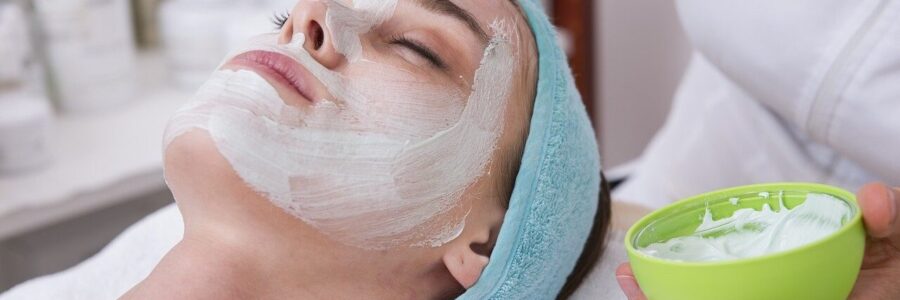Whether you enjoy a facial mask at a spa, or give yourself one at home with one of the many mask products on the market, do they really work? What are they good for, and when should you skip them?
Not Magic – But Often Helpful
If you have dry skin, acne, or need exfoliation, a mask might be just the thing to infuse your skin with treatments that can temporarily ease your dryness, cool inflammation, or add a brighter glow to your skin.
The magic in masks is all about the quality of the ingredients and what the ingredient is designed to do. Because it will sit on your skin longer, and often in conditions where your skin is warm (under a towel or in a steamy room), the mask’s active ingredients will have more time and ability to penetrate your skin.
When Masks Can do More Harm Than Good
Since masks work by keeping the active ingredients in contact with your skin longer, this allows them to penetrate deeply. But if one of the mask’s ingredients is an irritant for your skin, this can spell trouble.
If you have sensitive skin, you’ll need to ask your cosmetologist about the products they will be using, so you can check it for any ingredients you know will trigger a reaction. If you are enjoying a mask at a spa or cosmetology salon, be sure to tell the practitioner about your sensitivities.
If you’re buying a mask product to use at home, look for products marked hypoallergenic and/or made for sensitive skin. Ingredients to avoid would be artificial colors or fragrances, alcohol, phthalates, parabens and sulfates.
As with any skin product, try a small bit on your skin – like the inside of your arm – to check for sensitivity first before applying it to your face.
For Those with Skin Conditions
If you have a condition such as acne, eczema, TSW, or psoriasis, you’ll want to be extra careful. Exfoliating chemicals like retinol, or alpha-hydroxy, salicylic, and glycolic acids are common in masks, but can be inflammatory and may trigger a flare-up.
One potentially helpful ingredient for eczema sufferers or those with sensitive skin is hyaluronic acid, which is also naturally produced by your body. It is non-irritating, doesn’t trigger allergies, and can hold moisture against the skin. It has also been shown to reduce redness and dermatitis.
Clay and mud in masks absorb oils and moisture, which is part of their deep cleaning action. These natural and usually hypoallergenic ingredients can sometimes help those with oily skin, blackheads, and acne. However, don’t use clay or mud on your skin if you have open lesions as they could become infected, and be sure to follow with ample moisturizer as clay and mud masks can be drying.
Charcoal is another natural ingredient in facial masks, and it can be great for deep cleaning. It works similarly to clay and mud, absorbing excess oils as it cleans. As with clay and mud, it might be too drying for those with dry skin. With all skin types, a charcoal mask should be followed by a good moisturizer.
A mask product is best used every few weeks or so. If used too frequently, any mask product – no matter how gentle and effective – might irritate, dry, or stress your skin.
Soothing Self-Care
If you find a mask product you enjoy, and you’ve steered clear of problem ingredients and chosen the right mask for your skin type, enjoying a facial mask every few weeks can be a great part of a relaxing, soothing, self-care ritual.
And if you’re wondering, placing sliced cucumbers on top of your eyes while masking is optional – but definitely a refreshing accompaniment!
Want to Learn More About Skin Health?
Click HERE to get the Amethyst Holistic Skin Solutions Newsletter. You’ll receive interesting information about skin health via articles, before/after pictures, case studies of Amethyst patients, videos, interviews and more. Feel free to share this article with someone who you think may benefit.
About the Author
Olivia Hsu Friedman, LAc, Dipl.OM, DACM, Cert. TCMDerm, is the owner of Amethyst Holistic Skin Solutions and treats Acne, Eczema, Psoriasis, and TSW. Olivia treats patients via video conferencing using only herbal medicine. Olivia is Chair of the Board of Directors of the American Society of Acupuncturists, serves on the Advisory Board of LearnSkin, and is a faculty member of the Chicago Integrative Eczema Group sponsored by the National Eczema Association.



